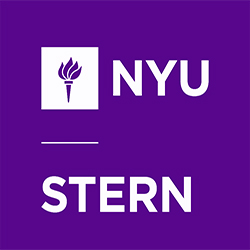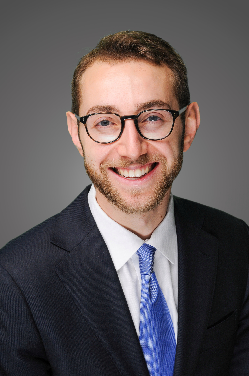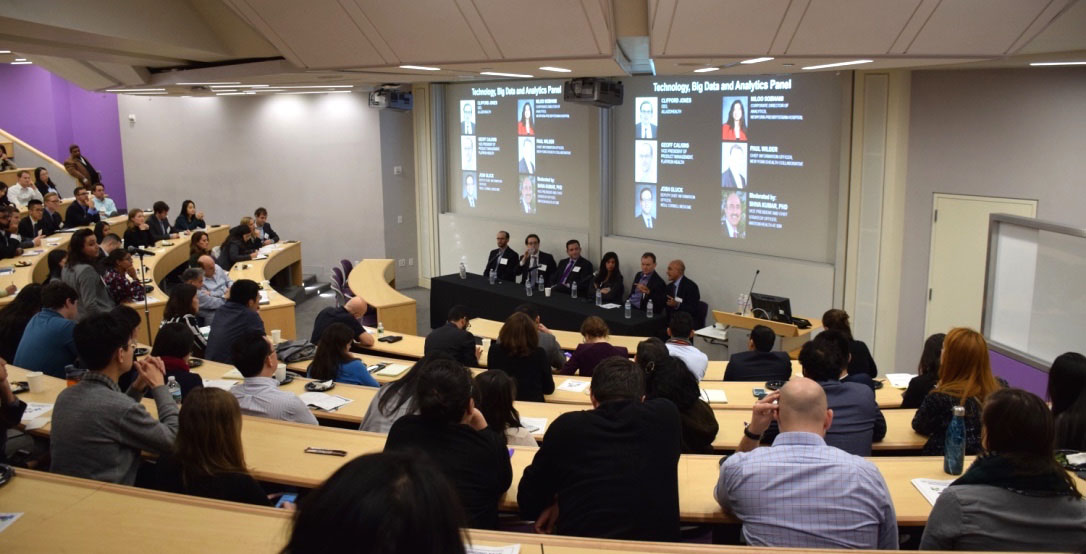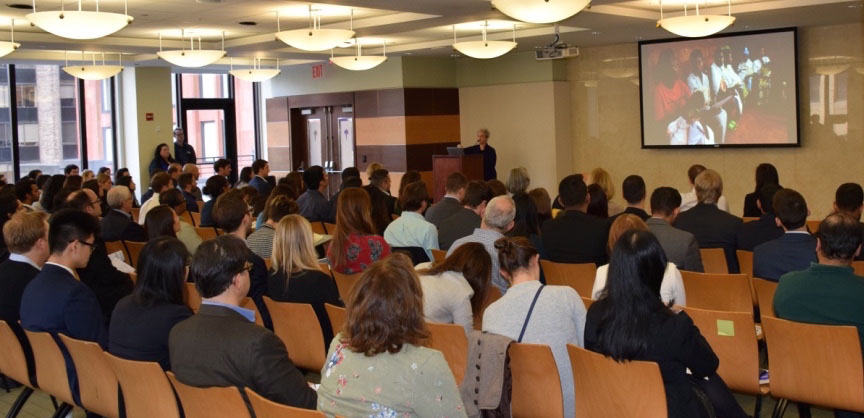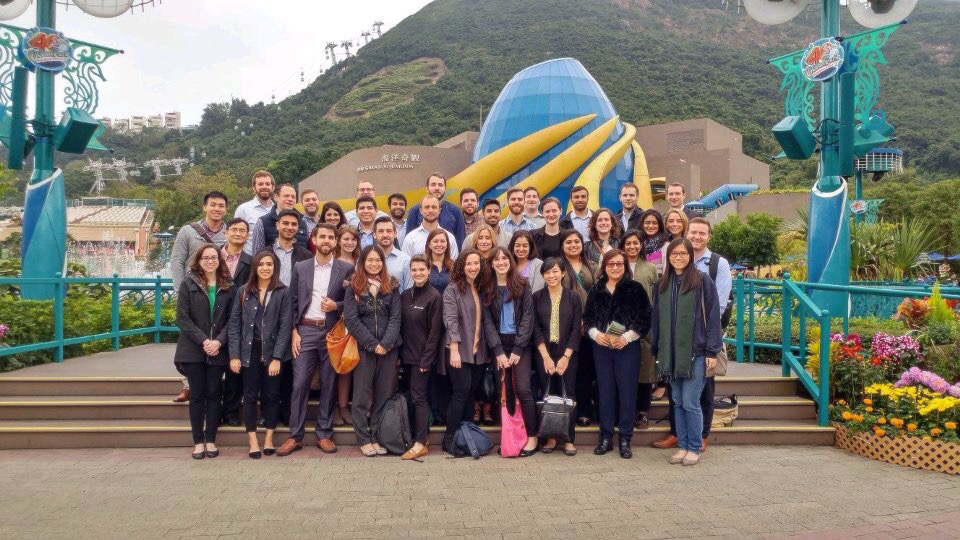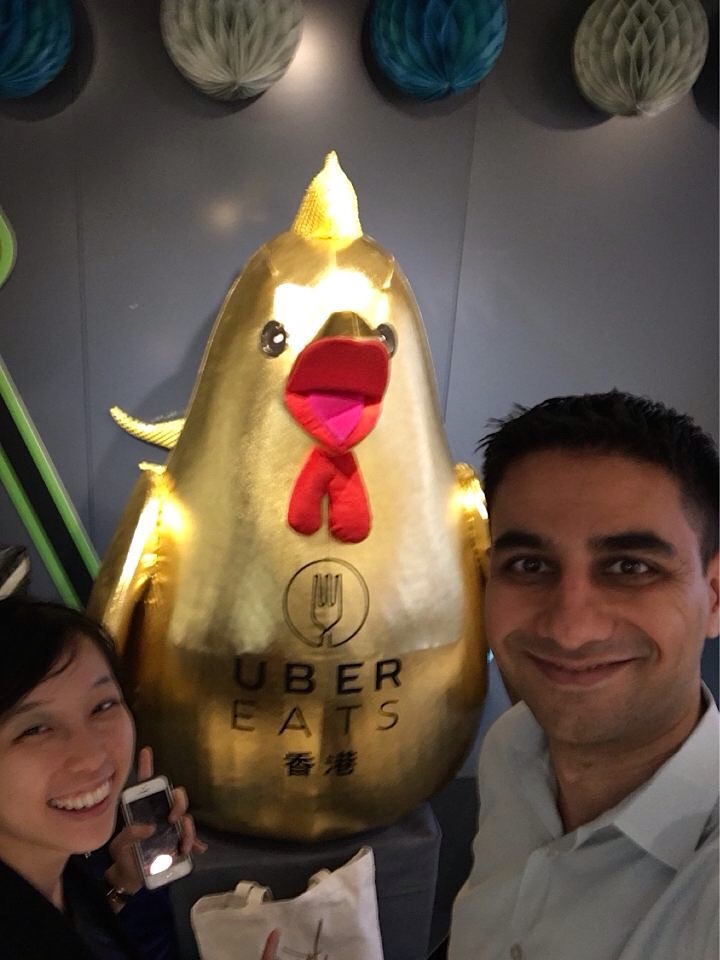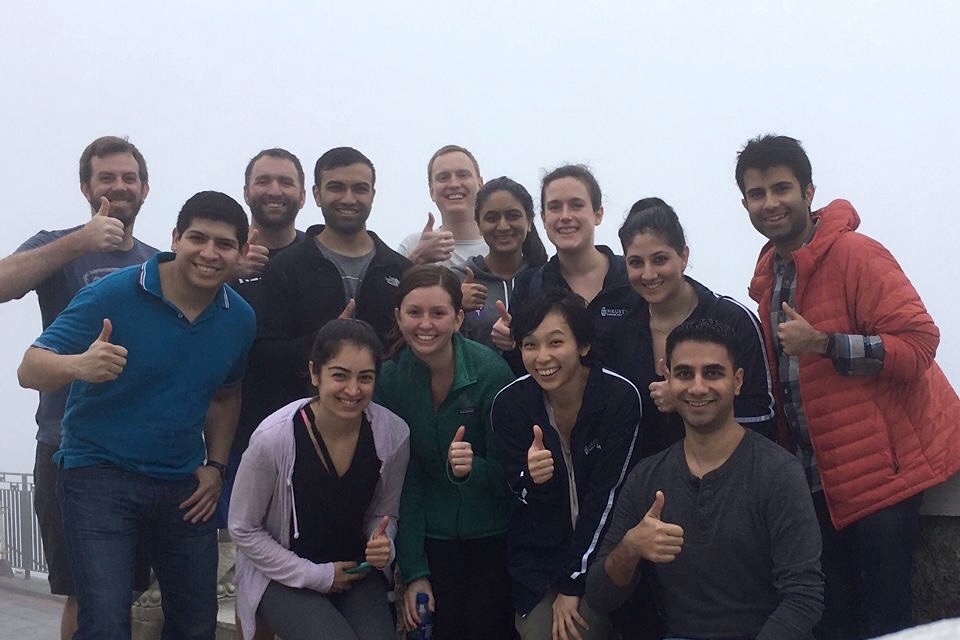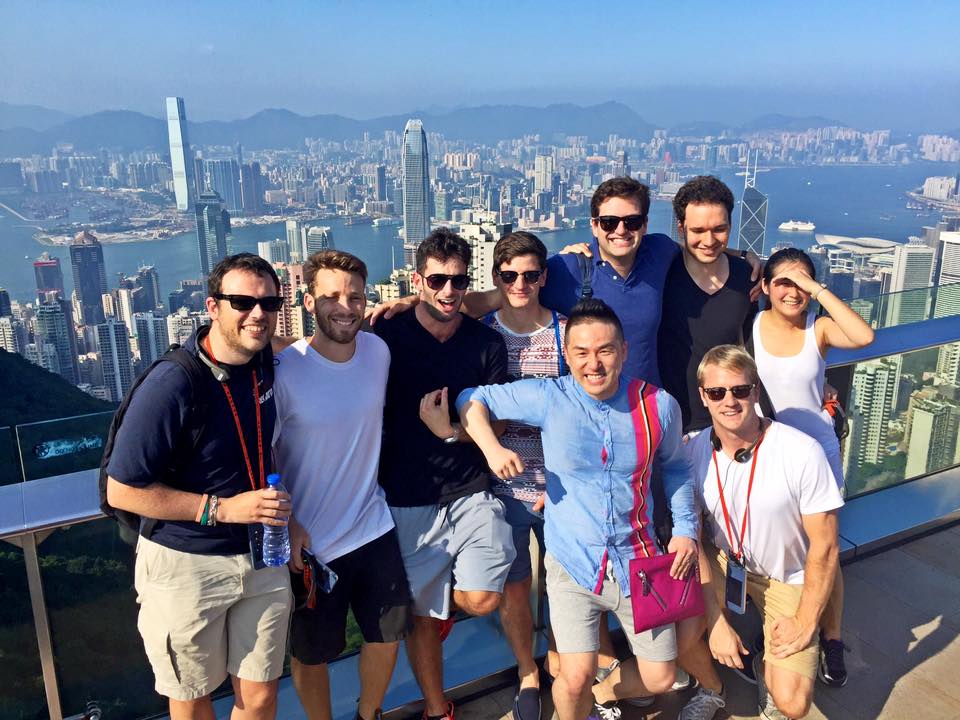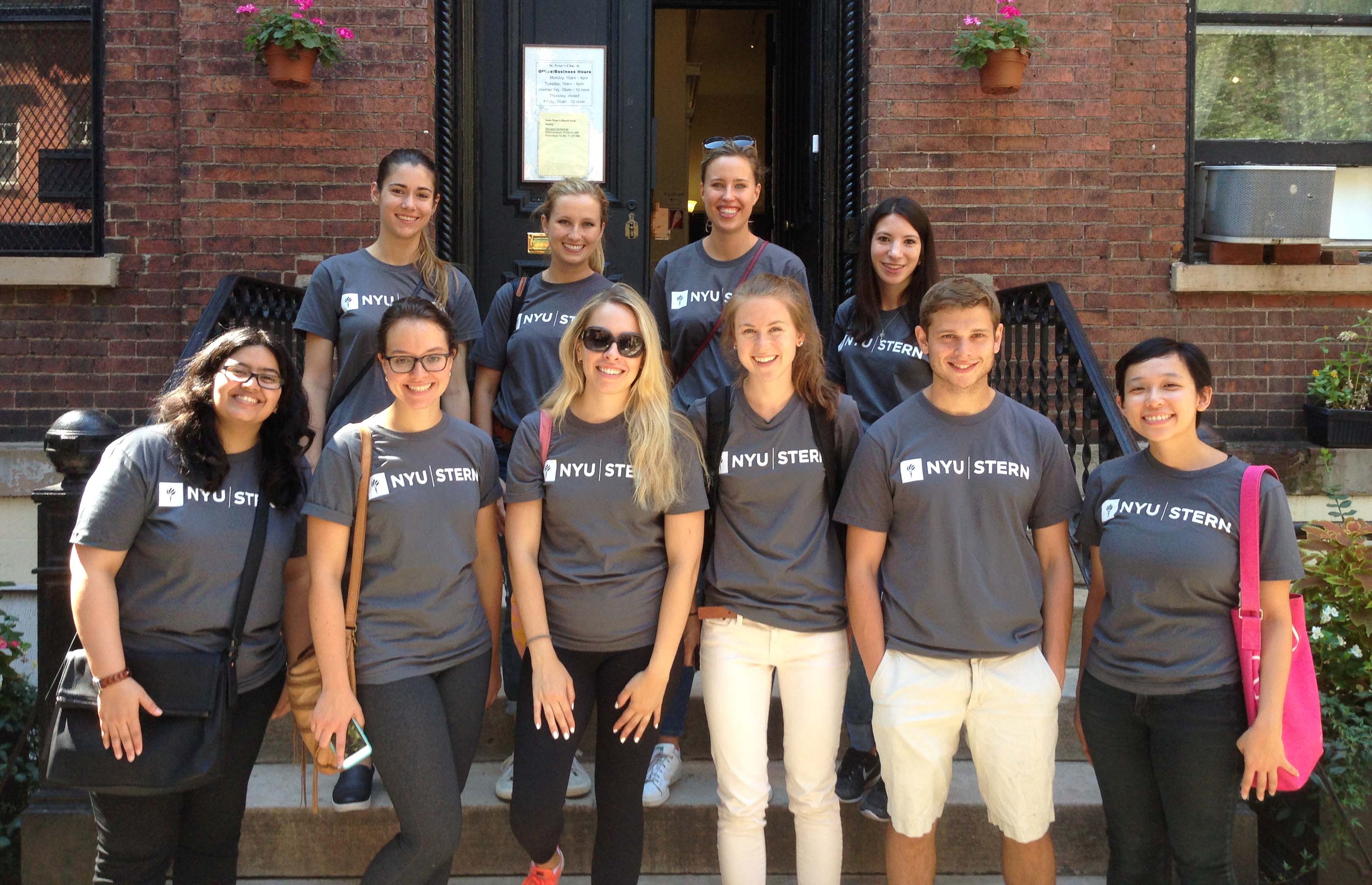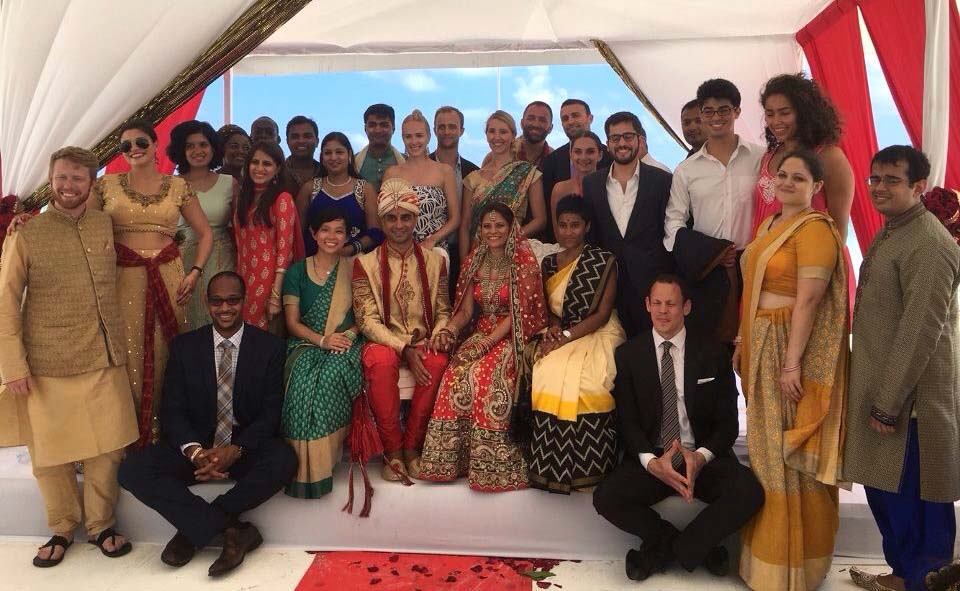 Jeet Khilnani is an MBA2, specializing in strategy and leadership & change management. Prior to Stern, Jeet worked at Nomura in a corporate finance role, and Deloitte in an audit role. This summer, Jeet interned at Boston Consulting Group (BCG) as a Summer Consultant and will be continuing to work at the firm post graduation in New York City. Additionally, Jeet is the Co-President of Outclass (Stern’s LGBTQ+ organization), and a VP of Stern Student Government, Management Consulting Association, Graduate Finance Association, and South Asian Business Association at Stern.
Jeet Khilnani is an MBA2, specializing in strategy and leadership & change management. Prior to Stern, Jeet worked at Nomura in a corporate finance role, and Deloitte in an audit role. This summer, Jeet interned at Boston Consulting Group (BCG) as a Summer Consultant and will be continuing to work at the firm post graduation in New York City. Additionally, Jeet is the Co-President of Outclass (Stern’s LGBTQ+ organization), and a VP of Stern Student Government, Management Consulting Association, Graduate Finance Association, and South Asian Business Association at Stern.
One of the biggest drivers of the MBA experience at Stern is the countless opportunities to learn by doing. Stern’s incredible location unlocks access to almost anything you want to do – PE/VC, Startups, Healthcare, Consulting, Finance, Impact Investing and the list just goes on. Stern’s “Change Studio” umbrella is so wide and deep, I think most students would not even be able to list all the different opportunities available!
This was a key component of my decision to attend Stern. I was uprooting my life from India and moving thousands of miles away to a whole new world in the US. I wanted to familiarize myself with the culture and see the different facets of the business world before I started my full time job, both as a way to prepare for it and to ease the learning curve a little bit. Through my time so far, I’ve experienced three different experiential learning opportunities – Communication for Consultants, Operations Consulting – An Experiential Approach & Endless Frontier Labs. Each course came with an opportunity to learn something new about business, about an industry I had no clue about, and in the process, about myself.
- Communication for Consultants: I decided to take this course in Spring 2022 right after I decided to pivot into consulting for my summer internship. I had no idea how consulting works, and I was coming from a near-shore role just before Stern. I instantly found myself attracted to a non-profit in the film and media space, and luckily, was matched to work with them. The challenge was mind-blowing – the non-profit had started a social impact film festival in virtual format during the pandemic, and now wanted to bring it to in-person format post-COVID.
In addition to this, the goal was to identify and overcome challenges in communication from the clients – they sometimes confuse symptoms with the problem, and there’s a lot of reading between the lines involved. I thoroughly enjoyed working on this project, eventually culminating into a final presentation with the client being present in the room with us, and appreciating the recommendations. We’re all so excited that the festival will be in-person (with a virtual option) in 2023 in Boston, MA!
- Operations Consulting – An Experiential Approach: After Communication for Consultants, I was craving more. And then came the opportunity to enroll in Operations Consulting during Fall 2022, and admittedly I understand nothing about operations. This course involves weekly visits to a new company and witness their operations during class time, followed by debrief and discussion thereafter. I was able to experience so many different industries in such a short span of time and I couldn’t be happier about it – a brewery, a global FMCG (fast-moving consumer goods), a sugar refinery, a port terminal, and a global cosmetics company. Learning how different (and how similar) their operations are, identifying problems and areas for improvement, and witnessing the different levels of adoption of technology has been so enriching!
While visiting all these plants, we also had to pick a business and do an independent project advising them improvements in their own operations – and we’re currently working with a grocery-delivery company to identify improvements for inventory management. It takes work, yes, but the learning and benefits are far greater and are setting me up for my career at BCG!
- Endless Frontier Labs: EFL is Stern’s signature startup accelerator, providing mentorship opportunities to startups around the world. This year, EFL received 1100+ applications from startups, and selected 75 startups for the year-long program through a process of rigorous interviews and application screenings (so it’s highly selective!). The first step was to interview companies and fill out our evaluations. Post that, MBA students are matched with selected startups following a double-blind matching process, and I was matched with a groundbreaking startup in the EV charging space. Again, I found myself feeling a bit anxious since I knew nothing about the space. But the founder and team was gracious enough to coach me, and so far, I’ve been designing a go-to-market strategy for them. Next semester, we plan to raise the seed funding for this company and if all goes well, I will be able to take pride in being a small part of this incredible company’s growth trajectory.
I’ve learnt so much already – about the EV space, the charging space, how it all works, and the economics behind it. This is an invaluable experience that I will take with me wherever I go, and also a great way to test out the craziness of the startup world that always intimidated me. I really like it – and I can survive it (which I didn’t know before!)
As you can probably tell, this is only a small fraction of the endless possibilities that Stern offers you through its experiential learning opportunities. To me, this is what an MBA looks like in today’s ever-changing business world, where you learn in class and apply the learnings to a real-world project with implications that define the success of your clients, and you.
